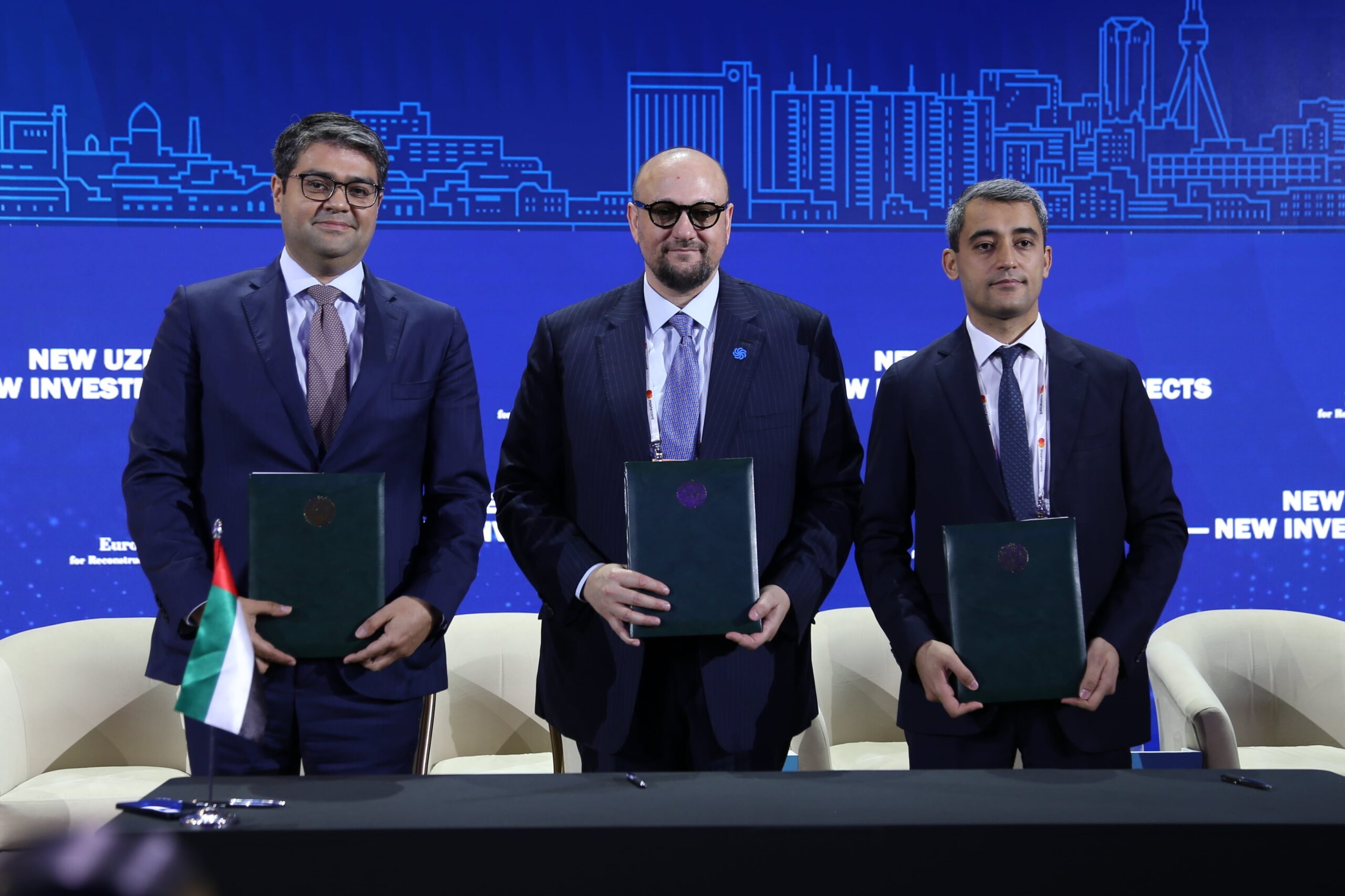Masdar has entered into an agreement to develop more than 2 GW of clean energy projects in Uzbekistan.
Masdar, the Abu Dhabi Future Energy Company, has recently solidified its partnership with Uzbekistan’s Ministry of Energy (MoE) and the Ministry of Investments, Industry and Trade (MIIT) by signing a Joint Development Agreement (JDA). The agreement aims to pave the way for the development of over 2 gigawatts (GW) of solar and wind projects, along with 500 megawatt-hours (MWh) of battery energy storage, to be implemented across various locations in the Central Asian country.
This collaboration marks a significant milestone in the growing relationship between Masdar, a global leader in clean energy, and Uzbekistan, which has set ambitious targets to derive 25 percent of its energy from renewable sources by 2030. With its abundant wind and solar resources, Uzbekistan offers a strategic opportunity for Masdar to expand its clean energy footprint in the region. The country has set a goal of achieving 7 GW of solar and 5 GW of wind capacity by the end of the decade.
Dr. Sultan Al Jaber, the UAE Minister of Industry and Advanced Technology, COP28 President-Designate, and Chairman of Masdar, emphasized the UAE’s strong commitment to supporting nations in their decarbonization efforts. Uzbekistan, being a key strategic partner, is the focus of collaborative efforts aimed at delivering renewable energy projects that not only provide clean power to homes and businesses but also contribute to a significant reduction in carbon emissions.
The agreement between Masdar and the Uzbekistani ministries sets the stage for the development of large-scale solar and wind farms, as well as the establishment of energy storage solutions to enhance grid stability and reliability. By harnessing Uzbekistan’s favorable climatic conditions and natural resources, Masdar aims to leverage its expertise in clean energy technologies to help the country achieve its renewable energy targets and drive sustainable economic growth.
The joint development of over 2 GW of solar and wind projects in Uzbekistan represents a significant step forward in the transition to a greener and more sustainable energy sector. These projects will not only contribute to the diversification of Uzbekistan’s energy mix but also foster the development of a local renewable energy industry, creating job opportunities and stimulating economic growth.
Furthermore, the deployment of battery energy storage systems will enhance the integration of renewable energy into the grid, ensuring a stable and reliable power supply. Energy storage technologies play a crucial role in enabling the efficient utilization of intermittent renewable energy sources, such as solar and wind, by storing excess electricity and delivering it during periods of high demand or when renewable generation is low.
Masdar’s extensive experience in developing and operating renewable energy projects globally positions the company as a reliable partner for Uzbekistan’s energy transition. Through knowledge transfer and technology sharing, Masdar aims to support the growth of a sustainable and resilient energy sector in Uzbekistan, while also contributing to the nation’s social and economic development.
The collaboration between Masdar and Uzbekistan aligns with the UAE’s broader commitment to advancing the clean energy transition on a global scale. The UAE has established itself as a leading proponent of renewable energy, investing in innovative technologies and sustainable development practices. By leveraging its expertise and resources, the UAE continues to play a pivotal role in driving the adoption of clean energy solutions worldwide.
As the partnership between Masdar and Uzbekistan progresses, it is anticipated that significant progress will be made in achieving Uzbekistan’s renewable energy goals. The development of over 2 GW of solar and wind projects, coupled with advanced energy storage solutions, will not only contribute to Uzbekistan’s energy security but also serve as a testament to the power of international collaboration in advancing the clean energy transition and building a sustainable future for generations to come.





